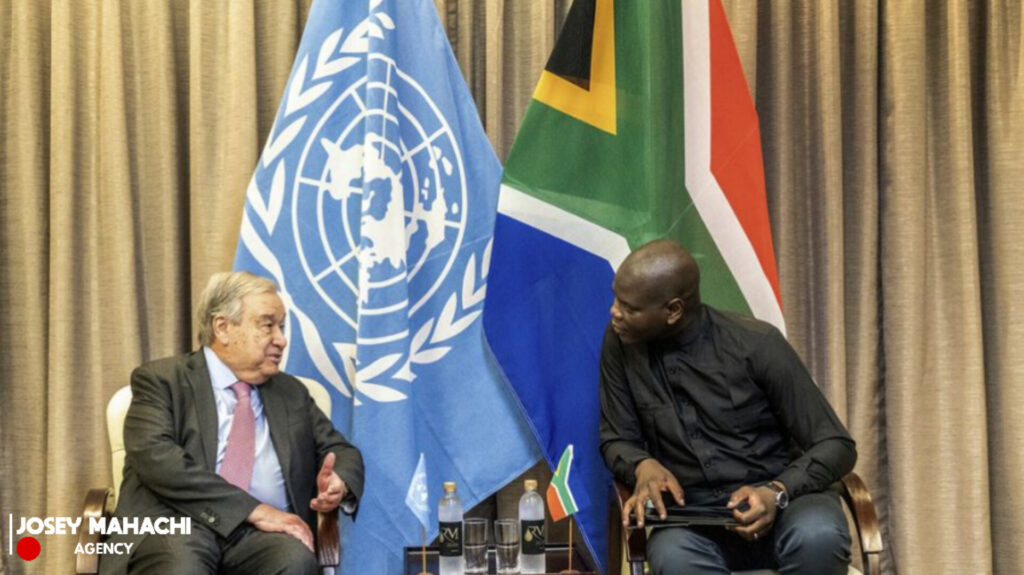By : Lloyd Mahachi
The United Nations Secretary-General, António Guterres, has issued a stern warning to rich nations to fulfill their climate finance promises to poor countries. During a speech to Lesotho’s Parliament, Guterres emphasized the urgent need for developed countries to deliver on their commitment to provide $300 billion annually for climate finance. This funding is crucial for helping poor countries adapt to the devastating impacts of climate change.
Guterres is currently on a three-day visit to southern Africa, where he has been engaging with leaders and assessing the region’s climate crisis. He noted that Africa contributes minimally to global warming, yet it is one of the continents most severely affected by its consequences. The UN chief stressed that landlocked and least-developed countries like Lesotho are particularly vulnerable to the effects of climate change, including droughts, floods, and heatwaves.
The recent drought in southern Africa has highlighted the dire need for climate finance. The drought has affected over 27 million people, with Lesotho being one of the countries to declare a national disaster due to its devastating impact on crops. Guterres pointed out that the drought is not just a natural phenomenon, but also a consequence of climate change. He emphasized the need for rich nations to take responsibility for their role in climate change and provide financial support to poor countries.
Guterres also discussed the new Loss and Damage Fund, which aims to compensate poor countries for natural disasters caused by climate change. He urged rich nations to fund this initiative generously, stating that it is their responsibility to do so. The UN chief’s visit to Lesotho is part of his efforts to raise awareness about the impact of climate change on Africa and to push for greater action from rich nations.
In addition to climate finance, Guterres also discussed the need for Africa to have greater representation on the UN Security Council. He expressed his hope that Africa would have at least two permanent members on the Security Council by the end of his term in 2026. Guterres noted that it is an injustice that Africa, with a population of over 1.4 billion, still has no permanent representation on the Security Council.
The UN chief’s visit to Lesotho included a trip to the Katse Dam, which is part of the Lesotho Highlands Water Project. The project aims to redirect some of Lesotho’s water into South Africa’s river system to help ease its neighbor’s water shortages. Guterres’ visit highlighted the importance of cooperation and solidarity in addressing the challenges posed by climate change.
As Guterres emphasized, rich nations must fulfill their promises and provide financial support to poor countries to help them adapt to the impacts of climate change. This is not only a moral obligation but also a necessary step to prevent further suffering and instability in Africa. The UN chief’s visit to Lesotho serves as a reminder that climate change is a global problem that requires a collective response.
The consequences of inaction will be severe, with more frequent and intense natural disasters, food insecurity, and water scarcity. It is imperative that rich nations take immediate action to provide climate finance and support to poor countries. The fate of Africa and its people depends on it. Guterres’ visit to Lesotho is a call to action, urging world leaders to prioritize climate justice and ensure a sustainable future for all.
Editor : Josephine Mahachi

